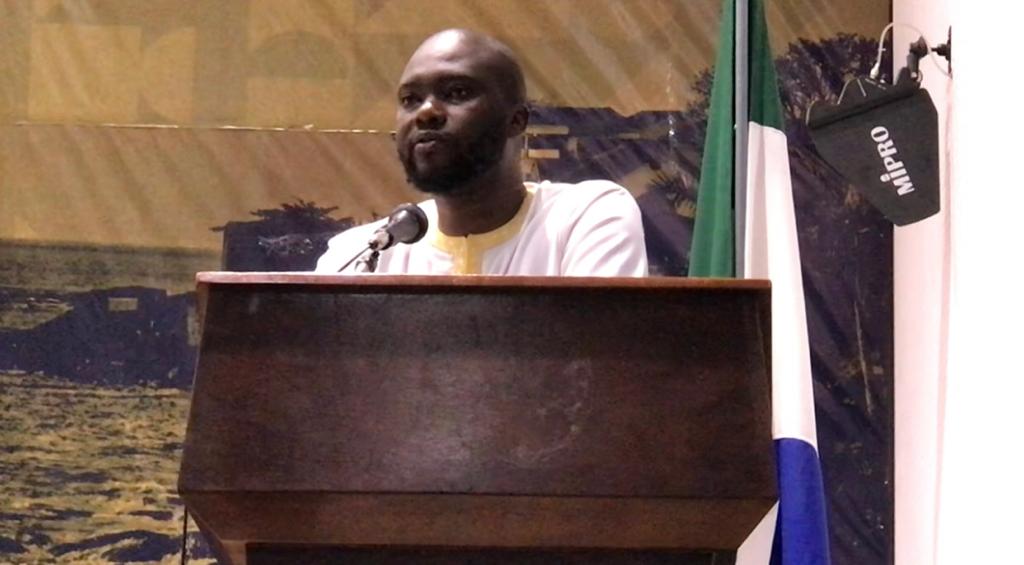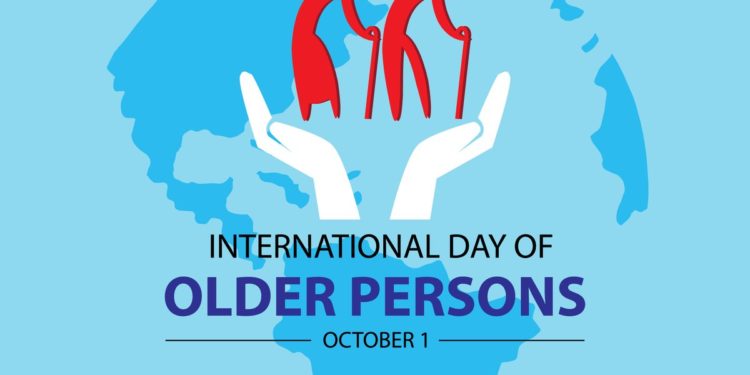By Sulaiman Stom Koroma
HealthCare for the Aged, the government of Sierra Leone and other partners have today October 1 celebrated the International Day of Older Persons.
The celebration held at the New City Hall in Freetown brought together government officials, partners, and over 200 old people from different parts of the capital city.
Making a statement on how his organization has worked with older persons over the years, the CEO and Founder of HealthCare for the Aged, Mohamed S. Bah, told a story about how the idea behind the formation of the organization came. “I witnessed a scene where a pregnant woman was carried on an ordinary blanket from the Gravel Boom Community, which is one of the deprived communities within Freetown, to a hospital that was miles away from their community. The community is deprived, isolate, and not motorable, making it difficult to access it whenever something tragic happens. On this day, while some of the community members were carrying a pregnant woman to the hospital, one of them carrying her tripped and the woman fell, miscarried, and died. This terrible and pathetic scene created shock and dismay for me. I then turned this sorrowful event into inspiration and immediately considered humanitarian support to that community and other deprived communities,” Bah narrated.
According to a 2017 UN report on population aging, Africa’s elderly population is expected to grow faster than in any other region in the world. The continent’s population aged 60 and over is “projected to increase more than threefold between 2017 and 2050, from 69 to 225 million”. In some countries, the number is expected to increase even faster.

By 2030, one in six people in the world will be aged 60 years or over. At this time, the share of the population aged 60 years and over will increase from 1 billion in 2020 to 1.4 billion. By 2050, the world’s population of people aged 60 years and older will double (2.1 billion). The number of persons aged 80 years or older is expected to triple between 2020 and 2050 to reach 426 million.
Mr Bah continued that at the biological level, aging results from the impact of the accumulation of a wide variety of molecular and cellular damage over time. This leads to a gradual decrease in physical and mental capacity, a growing risk of disease, and ultimately death. These changes are neither linear nor consistent, and they are only loosely associated with a person’s age in years. “But despite their increasing numbers, Africa’s older population continues to be largely overlooked. In 2016, the African Union member states adopted the African Charter on Human and People’s Rights on The Rights of Older Persons in Africa. The charter urged all African countries to put in place policy measures to protect the rights and address the needs of their older populations. But of the 54 member states, only 14 signed the charter and, in the four years since, Benin and Lesotho are the only two nations to formally ratify it”. Bah added.
A survey done by HealthCare for the Aged in 2019 show that over 30,000 old people live in Sierra Leone. Mr. Bah said that since 2016 to date, his organization has worked and provided medical assistance to over 2,900 older people in different communities across the country and that they have been using their resources to fund their activities.
“We have never received any funding from anybody or organization. Every penny we have spent so far has come from the little competitive funds we have allocated to taking care of ourselves and our families. We are overstretched now and need support. The demand for our services is massive but because of the limited resources, we may have to stop our operations or drastically cut down on the number, an action which will affect older people and their communities,” he concluded.
On 14 December 1990, the United Nations General Assembly designated October 1 as the International Day of Older Persons. This was preceded by initiatives such as the Vienna International Plan of Action on Ageing, which was adopted by the 1982 World Assembly on Ageing and endorsed later that year by the UN General Assembly.
Considering the general situation of the Aged in Sierra Leone, which is very appalling, and needs urgent and special attention, Bah and his colleagues decided to form the HealthCare for the Aged Organization (HCA) to exclusively cater to the well-being of vulnerable older people whom they believe might have contributed to building Sierra Leone during their youthful ages.
To complement their efforts, the government should ensure they create and finance programs that address the needs of older persons and protect their human rights. This means ending age discrimination, eradicating poverty in older age, ensuring decent health care, and pensions, and supporting such endeavors undertaken by HealthCare for the Aged.






















